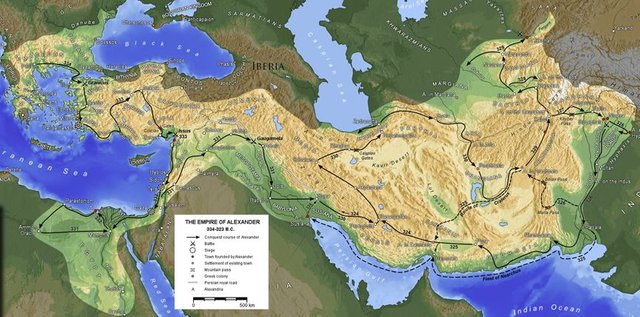Alexander the Great with reference to Asia Minor and beyond #4
For a few generations, the fragile peace had lasted until Alexander's father, Philip II, ushered in a new era of military confrontation. Supposedly it was revenge for the atrocities committed by the Persians during the Second Persian War, which now, about a hundred years later, made a war of aggression on the hereditary enemy necessary. However, just before Philipp could strike, he fell victim to a murder plot and the invasion had to be postponed.
Darius III. used the time to secure his rule. In the course of a revolution, actually installed only as a puppet on the throne, he quickly emancipated himself from his Grand Vizier Bagoas and finally eliminated it completely. Thus the stage was set for a drama that would end with the downfall of the Persian dynasty of the Achaemenids.
Strengthened by the awareness that he had settled everything in his home country, Alexander set off to finally tackle the punitive action he had planned against his father. It was a reckless, if not insane, enterprise: not even 40,000 men were available to bring an empire to its knees. Of his 5,000 cavalry and 30,000 infantry, mostly of light and heavy infantry, only half were Macedonian. Allies provided the rest of his army, which in the spring of 334 BC. BC crossed the Dardanelles.
Darius saw no reason to deal personally with the intruder; he left the defense of the empire to the competent satrap (provincial administrator) Spithridates. The Persians could easily catch their opponent at the Hellespont and stifle the invasion. However, it was Persian tradition and tactics to face an opponent first in his own country in order to crush him there with a superior force. The size of the country made it easy to face an invasion.
After landing, Alexander was thus able to sacrifice to the gods unaided and visit the tomb of the Trojan hero Achilles. Only then did he make his way deeper into the Persian Empire with his men. At the river Granikos, Greeks and Persians finally met for the first big exchange of blows.

